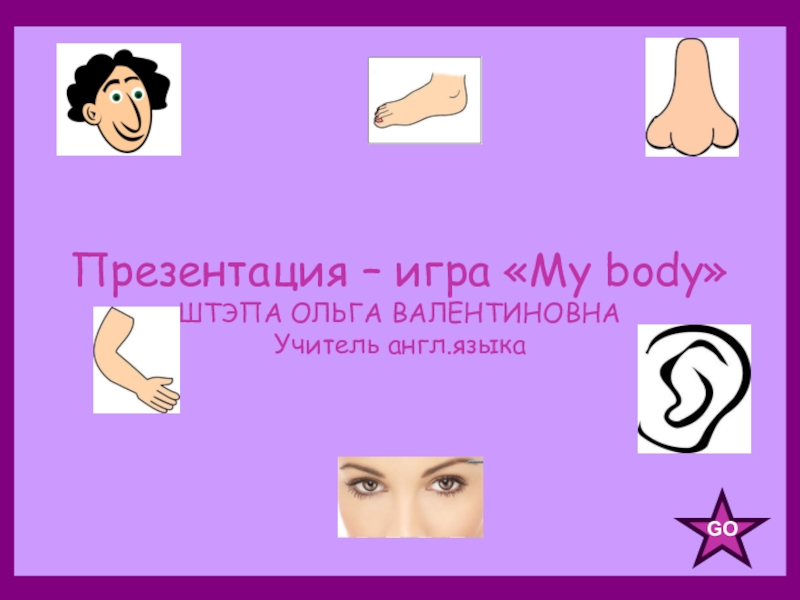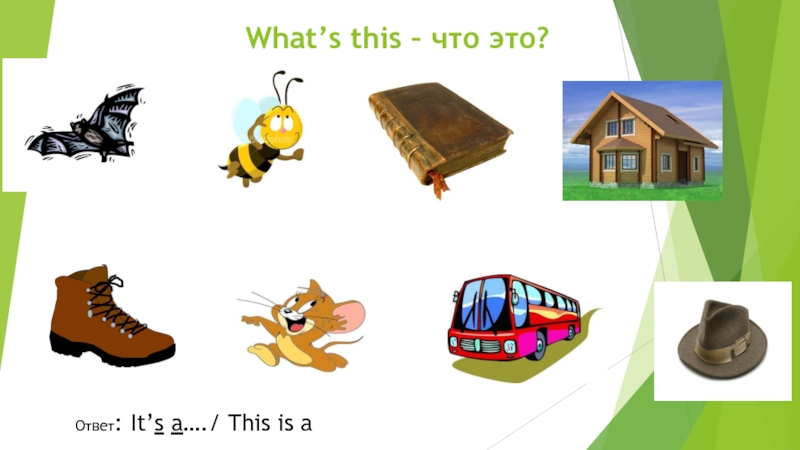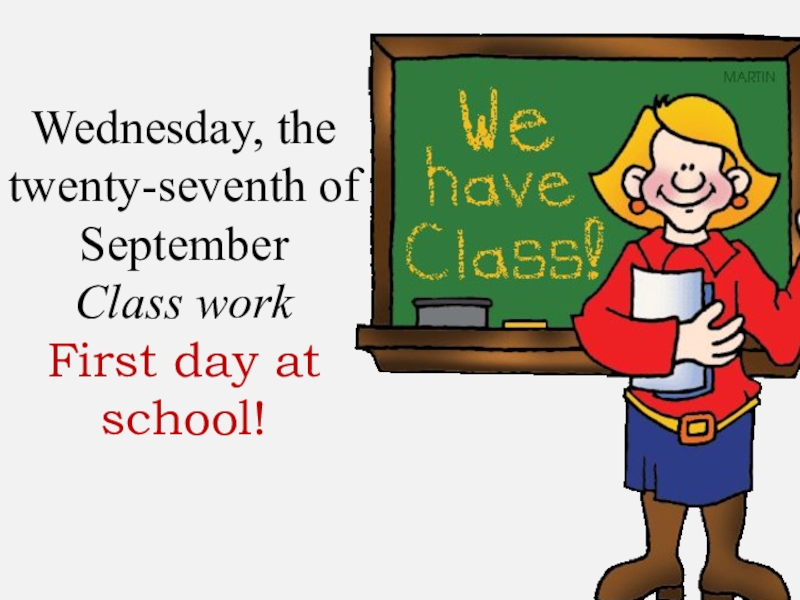- Главная
- Разное
- Образование
- Спорт
- Естествознание
- Природоведение
- Религиоведение
- Французский язык
- Черчение
- Английский язык
- Астрономия
- Алгебра
- Биология
- География
- Геометрия
- Детские презентации
- Информатика
- История
- Литература
- Математика
- Музыка
- МХК
- Немецкий язык
- ОБЖ
- Обществознание
- Окружающий мир
- Педагогика
- Русский язык
- Технология
- Физика
- Философия
- Химия
- Шаблоны, фоны, картинки для презентаций
- Экология
- Экономика
Презентация, доклад по английскому языку на тему Cравнительный анализ зооморфем через призму фразеологии в английском, русском языках и кубанском диалекте
Содержание
- 1. Презентация по английскому языку на тему Cравнительный анализ зооморфем через призму фразеологии в английском, русском языках и кубанском диалекте
- 2. phraseological units containing animal idioms are a
- 3. The aimsTo mark out zoo idioms which
- 4. The tasks of the work To make
- 5. 220 zoo idioms, selected from the phraseological
- 6. Phraseology is a combination of phraseo-logical units
- 7. 3 types of similarities among idioms:The 1st
- 8. as stubborn as a donkey (англ.) –
- 9. an old fox (англ.) – старый воробей
- 10. one black sheep will mare a whole
- 11. The most “popular” names of animalsin English, Russian and Kuban idioms catdoghorsebirdfishwolfwolfpig
- 12. barking dog seldom bite (англ.) – не
Слайд 1The comparative analysis of zooidioms through the prism of phraseology of
Слайд 2
phraseological units containing animal idioms are a rather big layer of
lexical elements of zoo idioms are very interesting layers of English, Russian and Kuban vocabulary including such lexico- semantic groups as “animals”, “birds”, “fish” and many others
The actuality
Слайд 3
The aims
To mark out zoo idioms which fully
or partially coincide
lexical and grammatical levels
To compare English, Russian and Kuban
zoo idioms which have the names of
some animals, birds and fish as a key word.
Слайд 4
The tasks of the work
To make tables of zoo idioms
To examine basic principles of classifications and methods of comparing idioms
To compare and analyze English, Russian and Kuban idioms which have the names of animals as a key word
Слайд 5
220 zoo idioms, selected from the phraseological vocabularies with
the sample
Figurative meanings of zoo idioms that have various semantic functions and emphasis.
The subject matter of the work
The object of the work
Слайд 6
Phraseology is a combination of phraseo-logical units or phraseo-logical compositions of
“Zoo idioms” mean phraseological units with the names of animals, birds, fish and other alive creatures as a key word.
Слайд 7
3 types of similarities among idioms:
The 1st type is based on
The 2nd type is connected with the absence of monosementic equivalence of units on lexical level
The 3rd type with an absence of monosementic equivalence of units on grammatical level
to eat like a bird (англ.) – ест как птичка (рус.) – йисты як пташка (куб.)
to eat like a horse (англ.) –
есть как волк (рус.) –
йисты як свыня (куб.)
one wouldn’t hurt a fly (англ.) – и мухи не обидит (рус.) – и мухы нэ зачэпыть (куб.)
e.g.
e.g.
e.g.
Слайд 8as stubborn as a donkey (англ.) – упрямый
как осел (рус.) –
as sly as a fox (англ.) – хитрый как
лиса (рус.) – хытрый як лысыця (куб.)
you cannot fly the same ox twice (англ.) –
с одного вола двух шкур не дерут (рус.) –
з одного вола двох шкур нэ дэруть (куб.)
as brave as a lion (англ.) – храбрый как
лев (рус.) – хоробрый, як лэв (куб.)
an early bird (англ.) – ранняя пташка (рус.) –
рання пташка (куб.)
as proud as a peacock (англ.) – важный как
павлин (рус.) – пышаэться як пава (куб.)
as strong as a bull (англ.) –– сильный как
бык (рус.) – здоровый, як вил (куб.)
The phraseological
equivalents
of the 1st type
Слайд 9an old fox (англ.) – старый воробей (рус.) –
старый вовк
as gentle as a dove (англ.) – кроткий как
ягненок (рус.) – тыхый як ягнятко (куб.)
a bird’s eye view (англ.) – вид с высоты
птичьего полета (рус.) – выд з высоты
пташыного польоту
to work like a horse (англ.) – работать как
вол (рус.) – працюваты як вил (куб.)
pigs might fly (англ.) – бывает, что коровы
летают (рус.) – буваэ, що й слон литаэ (куб.)
to get up with the larks (англ.) – вставать с
петухами (рус.) – вставаты з пивнямы (куб.)
to dance like an elephant (англ.) – танцевать
с медвежьей грацией (рус.) – танцюваты
як ведмидь
The phraseological
equivalents
of the 2nd type
Слайд 10one black sheep will mare a whole flock (англ.) –
паршивая
паршива вивця всю отару спаскудыть (куб.)
one wouldn’t hurt a fly (англ.) – и мухи не
обидит – и мухы нэ зачэпыть (куб.)
if you run after two hares you will mare catch
neither (англ.) – за двумя зайцами погонишься,
ни одного не поймаешь (рус.) – за двома зайця-
мы пожэнэшся, жодного нэ впиймаеш (куб.)
an old ox makes a straight furrow (англ.) – старый
вол борозды не портит (рус.) – старый вил
борозны нэ псуе
who keeps company with the wolves, will learn to
howl (англ.) – с волками жить, по-волчьи выть
(рус.) – з вовкамы жыты – по-вовчому выты (куб.)
The phraseological
equivalents
of the 3rd type
Слайд 11
The most “popular”
names of animals
in English,
Russian and
Kuban idioms
cat
dog
horse
bird
fish
wolf
wolf
pig
Слайд 12
barking dog seldom bite (англ.) – не бойся собаки брехливой, а
cats scratch at one’s soul (англ.) – кошки скребут на душе (рус.) – кішки скребуть на душі
don’t look a gift horse in the mouth (англ.) – дареному коню в зубы не смотрят (рус.) – дарованному конэви в зубы нэ дывляться (куб.)
the bird has flown (англ.) – птичка улетела (рус.) –
птах вылетив, и слиду нэма, и мисцэ прохолонуло (куб.)
as mute as a fish (англ.) – нем как рыба (рус.) –
нимый як рыба (куб.)
to set the wolf to keep the sheep to teach the cat the way to the kirn (англ.) – пустить козла в огород (рус.) замкнуты вовка межи вивци (нэхай тюрму знаэ)
cat
dog
horse
bird
fish
wolf

















